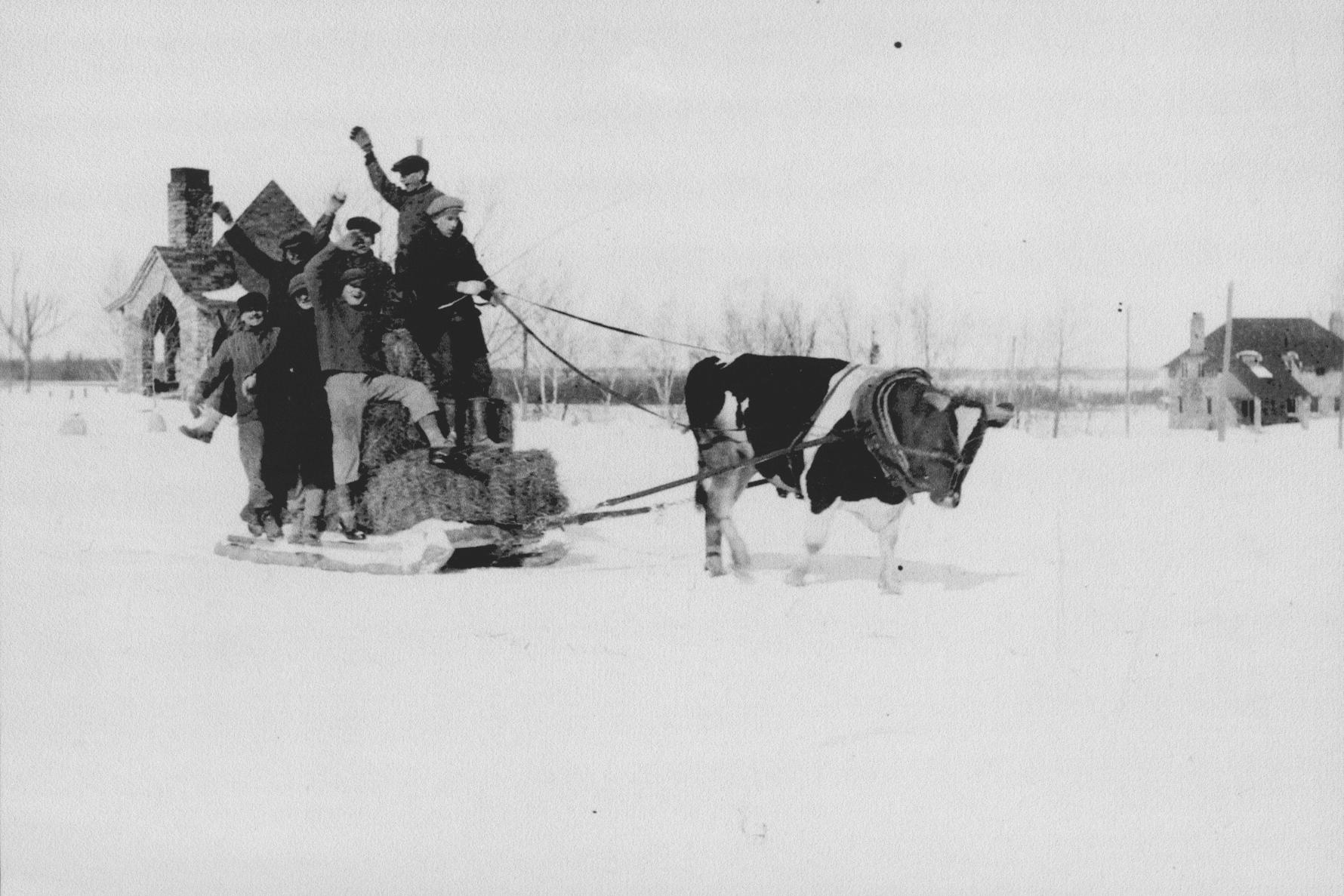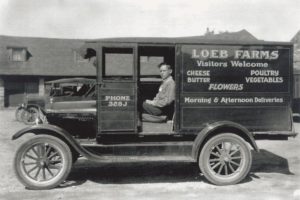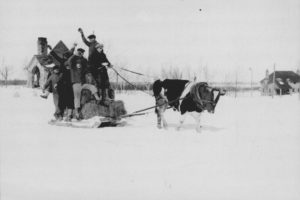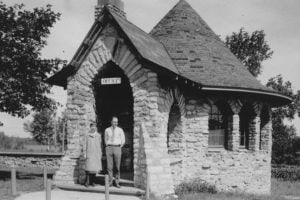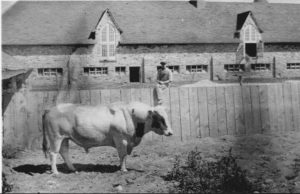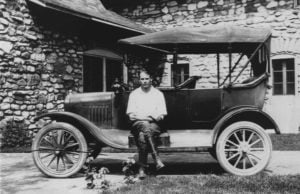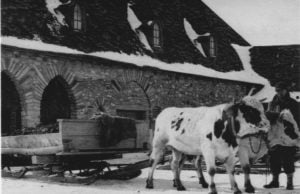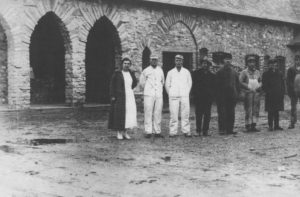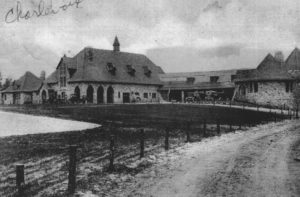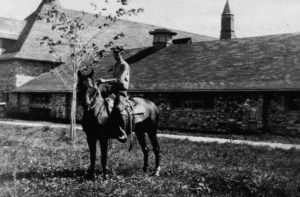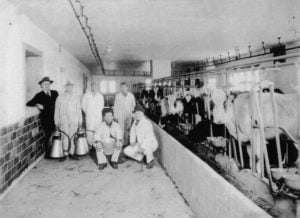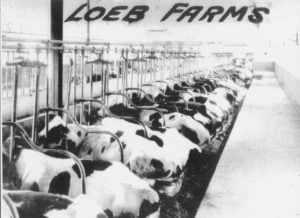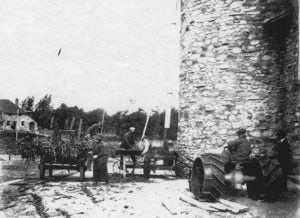After two years of construction, the project was complete. Albert and Anna Loeb could finally settle down with their family to enjoy their new summer home and their nearby farm opened for business.
Albert’s vision of a working dairy farm flourished and eventually Loeb Farms employed more than ninety people in its daily operations. It was the largest employer in Charlevoix County, even having a full-time veterinarian living on site. The men lucky enough to hold a position working at the farm considered themselves fortunate. One wing of the dairy barn known as “The Club” was housing for single men, featuring card tables and modern shower baths. Mr. Loeb made every attempt to ensure his employees were provided with the best of modern-day conveniences.
He not only wanted the best for his employees, Albert Loeb strived for excellence in the farm as well. The dairy barn used only the latest and best farm equipment sold by Sears, including electric milk machines, automatic watering troughs, cement feed troughs with flushing apparatus, and mechanical manure conveyors. Even the walls of the dairy barn were exquisite, with the tile lining the walls instead of the normal whitewash. When it came to farming operations, no expense was spared.
The results of the farming operations were impressive. Mr. Loeb was very proud of his Holstein-Friesian cattle as they consistently set records for milk production. He was especially proud of Marion, a pedigree Holstein-Fresian dairy cow, who produced thirty five thousand pounds of milk in 1922. Marion was the second highest milk producer in the world and needed to be milked four times per day. In addition to the dairy cows, horses played an important role in providing the farm with success. With tractors just coming into use, draft horses still pulled their weight in the farming.
Loeb Farms was a self-sufficient, working estate. There was an artesian well flowing deep below ground which was a source of fresh water for the livestock and various buildings. By 1923, a cheese factory had been established on site and local dairy farmers were urged to participate in a milk route. All available milk was shipped daily to the farm for processing and sold under the name Golden Leader through a thriving mail-order business at Loeb Farms.
When the farm opened to the public, it immediately proved a popular gathering spot for Sunday afternoons and ended up playing a meaningful role in the life of the Charlevoix community.
